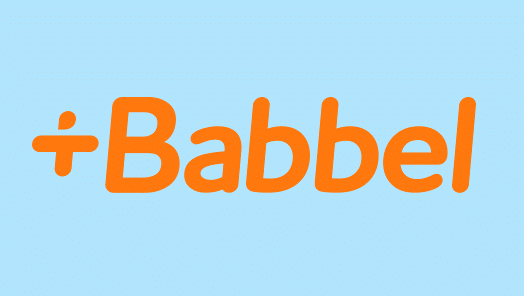Is Babbel worth it in 2026?
We take a look at Babbel in depth...

Babbel has long been one of the most recognizable names in language learning, but with competition from Duolingo, Rosetta Stone, and newer AI-powered apps rising fast, the question in 2026 is whether Babbel is still worth your time and money. This in-depth review breaks down how Babbel performs on pricing, features, real-world user outcomes, and overall value.
What is Babbel and how does it work?
Babbel is a digital language-learning platform available via mobile app and web browser. It offers structured lessons in 14 languages, focusing on practical vocabulary, everyday conversation, and grammar reinforcement. Each lesson lasts around 10 to 15 minutes, using repetition and spaced learning to drive retention. In 2026, Babbel also includes speech recognition, short podcasts, and review sessions tailored to your mistakes. Courses are created by language experts – not AI or crowdsourced contributors – and build sequentially.
New in 2025: AI-powered conversation practice
Babbel has recently introduced an AI Conversation Partner in key languages like Spanish, French, German, and Italian. This tool lets learners engage in simulated, real-time dialogues with AI – providing instant feedback on your speaking, vocabulary choices, and grammar. It’s a smart way to practise conversation in a safe, structured setting.
Update for 2025: Babbel now includes ‘Babbel Speak’, an AI guided speaking trainer for low-pressure, real-world practice. (Read more here).
Babbel reviews by language:
– Babbel Spanish review
– Babbel Italian review
– Babbel German review
Who is Babbel best for?
Babbel is ideal for beginners and low-intermediate learners looking for a structured, self-paced course. It’s especially useful for:
– Travelers preparing for short stays abroad.
– Busy adults fitting in 10–15 minutes of study per day.
– Casual learners wanting grammar support.
– People who dislike overly gamified learning tools.
It may not be the best option for advanced learners or those wanting full immersion and live conversation.
How much does Babbel cost in 2025?
As of mid-2025, Babbel offers multiple plans*:
– $15/month for 3 months
– $13/month for 6 months
– $8/month for 12 months
* prices are after typical sale promos and correct as of June 27, 2025
Lifetime plans and discounts (up to 60% off) are often available, especially during seasonal sales. A free 7-day trial gives full access before committing.
You can find full details in our guide: how much does Babbel cost? Also, learn more about whether Babbel is free and what limitations apply.
Babbel’s pricing is mid-range and sits between Duolingo and Rosetta Stone, but delivers stronger structure, clearer grammar instruction, and better long-term progression.
Pros and cons of using Babbel

Pros
- Created by real language teachers – not AI.
- Great for building foundational grammar and vocabulary.
- Clean, non-distracting user interface.
- Offline access and flexible review tools.
- Lessons progress logically from A1 to B1 language comprehension level.
Cons
- No live tutors or AI chatbots.
- Some repetition across modules.
- Less helpful for advanced learners.
- Speech recognition is limited vs competitors.
Real user feedback and ratings:
In 2025, Babbel maintains a 4.7/5 rating across the App Store, Google Play, and Trustpilot. Users praise the structure, ease of use, and clear grammar guidance. Many note consistent progress in just 15 minutes a day. Common criticisms include slow progress beyond beginner levels and lack of speaking practice.
Example feedback:
“I’ve stuck with Babbel for 4 months and my Spanish is definitely improving. It’s not flashy like Duolingo, but it’s a lot more useful.”
“The review feature is amazing. I can keep going over mistakes until I fix them.”
Check out a visual breakdown in our video reviews:
How Babbel compares to other apps
Babbel vs Duolingo: Babbel is more structured and grammar-focused. Duolingo is more game-like, but less in-depth.
Babbel vs Rosetta Stone: Babbel is cheaper and easier to use on mobile. Rosetta Stone offers full immersion, but it can feel abstract and repetitive.
Babbel vs Jumpspeak: Jumpspeak uses AI-powered roleplay for speaking practice. Babbel is better for grammar and reading-focused learners who want traditional structure.
Babbel vs Lingopie: Detailed comparison between these two popular, yet distinctly different language apps.
Final thoughts: is Babbel still a good choice this year?
Yes. For casual learners, beginners, and anyone wanting structured lessons with grammar support, Babbel remains a top-tier app in 2025. It’s not the flashiest or the most advanced, but it delivers consistent results for learners who stick with it. If you’re after a flexible, affordable language-learning app that fits around your schedule, Babbel is still worth it.
Try Babbel today & see why thousands of learners rate it 4.7/5!




